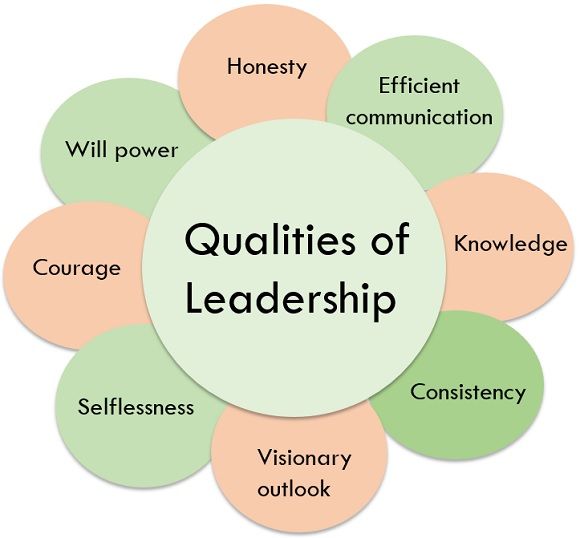A Strong Leader: Competencies to Thrive in Challenging Times
In today's rapid and commonly uncertain world, the qualities that characterize a resilient leader are ever crucial than ever. As businesses encounter an range of difficulties, from financial instability to shifting workforce structures, effective leadership has emerged as a linchpin for organizational performance. A leader who can not only endure the trials of struggle but also encourage their team to succeed during transformation possesses a distinct set of skills that sets them apart. This article delves into the key leadership abilities every leader should develop, with a focus on how these abilities can foster strength and drive performance.
From social skills to clear communication, each skill plays a key role in developing a leader's ability to lead with assurance and kindness. As we investigate these key competencies, we'll discover applicable techniques for developing strong problem-solving skills, fostering trust within groups, and adapting to the obstacles that await. By refining these essential abilities, leaders can create environments that merely withstand adversity but also empower their teams to create and perform, ultimately transforming the future of their enterprises.
Essential Management Traits for Achievement
Robust management is essential to any successful organization, and developing key abilities is essential for those aspiring to excel in challenging times. Among these abilities, emotional intelligence stands out as a critical component. Leaders who demonstrate a great degree of emotional intelligence can comprehend and manage their own emotions while empathizing with the feelings of colleagues. This empowers them to build rapport and connection with their teams, fostering an environment where innovation and cooperation can prosper.
Effective communication is also cornerstone of effective leadership. Leaders must be able to articulate their vision effectively and foster open communication among team members. This entails not just sharing information, but also enthusiastically hearing to the thoughts and ideas of colleagues. By fostering an atmosphere of transparency and inclusivity, leaders can inspire their teams to engage more fully with their work, enhancing collective performance and output.
Agility is progressively recognized as a essential trait for today's leaders. In a swiftly changing corporate landscape, leaders must be capable of altering their strategies and approaches as circumstances change. This demands a combination of critical thinking and resilience. A leader who can cope with uncertainty and accept change inspires confidence within their team, situating the organization for long-term prosperity. By developing these vital leadership traits, professionals can greatly enhance their effectiveness in guiding their teams through challenges.
Developing Key Leadership Competencies
To excel in adversity, leaders must refine a set of critical competencies that enable them to handle challenges effectively. One of the primary skills is the ability to understand emotions, which allows leaders to understand and control their emotions, as well as relate with their team members. Enhancing this skill encourages better relationships and a nurturing work environment, making it easier to inspire teams even in difficult times. Moreover, self-awareness, a component of emotional intelligence, helps leaders identify their strengths and weaknesses, allowing them to constantly improve and evolve their leadership style.
Clear communication is also crucial for leaders confronting adversity. Mastering https://peterashbysmith.com/top-5-leadership-qualities-for-modern-managers/ of concise communication creates trust and facilitates open dialogue. Leaders should prioritize listening actively, which not just enhances clarity but also makes team members feel acknowledged and heard. By focusing on communication and employing techniques such as constructive feedback, leaders can build a environment of collaboration and empowerment, where team members are motivated to give their maximum potential.
Furthermore, adaptability is a must-have skill for modern leaders. In an constantly evolving business landscape, leaders must be ready to change strategies, embrace transformation, and guide their teams through uncertainty. Cultivating critical thinking skills improves a leader's ability to evaluate situations and make timely decisions efficiently. By promoting resilience and encouraging a learning-agile mindset, leaders equip themselves and their teams to confront adversity with assurance, ensuring sustained prosperity and progress in challenging environments.

Tackling Management Challenges
In the constantly changing landscape of the workplace, leaders face various challenges that demand a significant reservoir of expertise and resilience. One of the key skills is versatility, which allows managers to handle shifting situations and expectations. By accepting transitions as an opportunity, rather than a obstacle, managers can guide their teams through uncertainty, showing that adaptability is crucial for success. This adaptability also improves a leader's decision-making approach, making sure that decisions are well-considered and pertinent to the present context.
Emotional intelligence plays a critical role in addressing leadership challenges. By understanding and managing their personal feelings while empathizing with their team, managers create a nurturing atmosphere conducive to growth and collaboration. This ability to connect on an emotional level not only aids in conflict settlement but also helps in establishing credibility. As leaders navigate obstacles, showing vulnerability and authenticity can motivate group participants to participate honestly and contribute innovatively to solutions.
To effectively master management challenges, it is important to develop a frame of mind of continuous learning and development. This requires seeking input, thinking back on experiences, and formulating a planned method to problem-solving. By focusing on learning agility, managers can adjust their approaches to meet the evolving needs of their groups and companies. This resolve to growth empowers managers to not only face obstacles frontally but also convert them into stepping stones for deeper group unity and enhanced effectiveness.